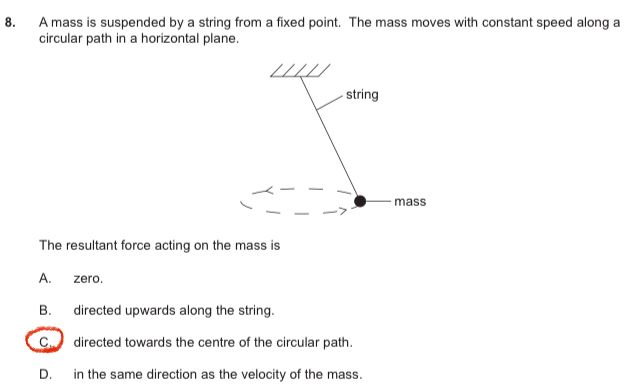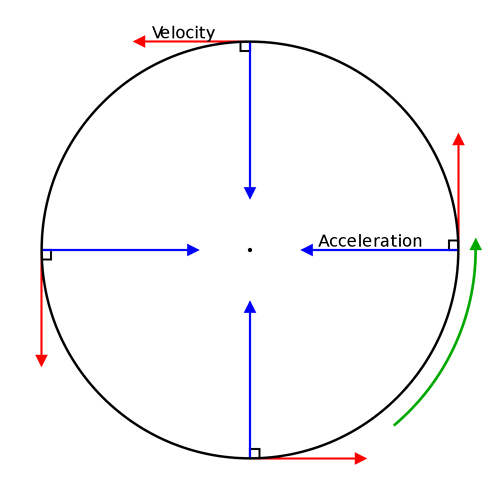
Any idea why c. is the right answer?
Answer credited to @Asafmen
This is a classic Harmonic Circular Movement.
To help it make more sense, let’s look at the vectors from above:
If you leave the ball to be free at any moment, it will continue to move in a straight line- not in a circle. If the acceleration was in the same direction as the speed, the movement would not be circular.
Using Newton’s Second Law: F=ma, we know a and F are vectors, but Mass m is scalar, proving a and F mostly have the same directions.
To simplify using an example, take a satellite rotation on the Earth, though not perfectly harmonic, the Earth in the middle is the centre.
